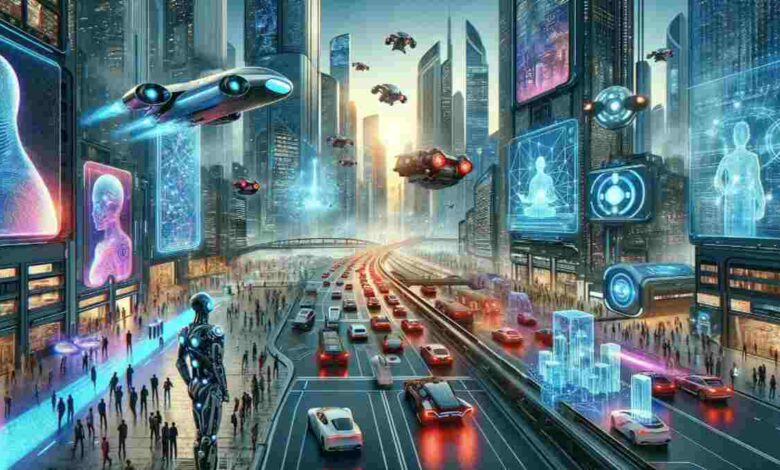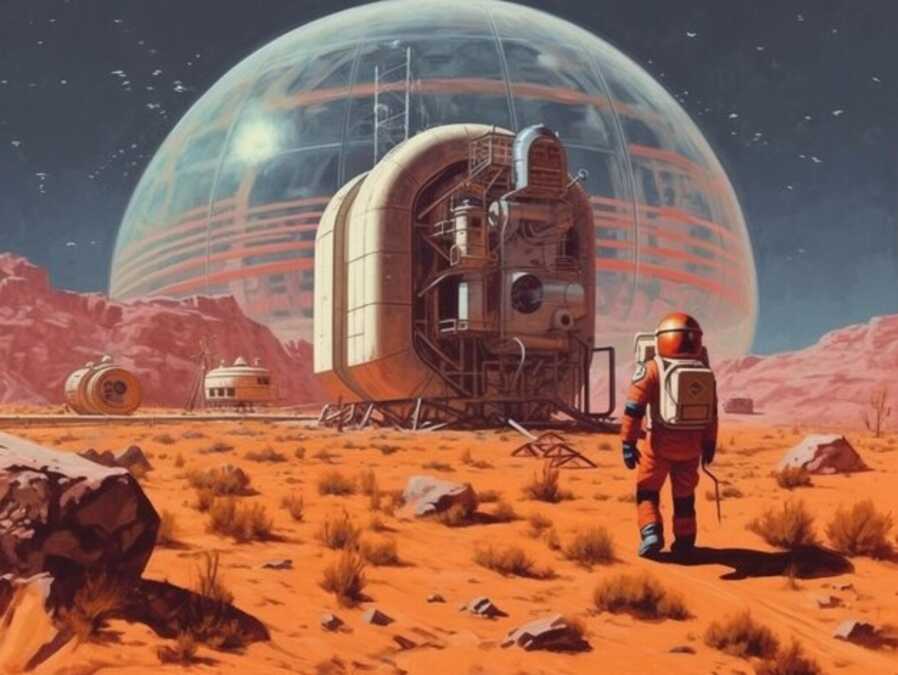Latest Technologies : Exploring the Best Future Cutting-Edge Shaping Tomorrow

As we step further into the 21st century, technological advancements are accelerating at an unprecedented pace. These innovations are set to transform every aspect of our lives, from how we work and communicate to how we travel and even how we think. In this article, we will explore some of the most exciting future latest technologies that promise to redefine our world. From quantum computing and artificial intelligence to biotechnology. And space exploration, we delve into the innovations that are paving the way for a futuristic society.
1. Quantum Computing: Revolutionizing Problem Solving
Quantum computing is one of the most anticipated technological breakthroughs of our time. Unlike classical computers, which use bits to process information in binary (0s and 1s), quantum computers use quantum bits or qubits. This allows quantum computers to perform complex calculations at speeds unattainable by today’s most advanced supercomputers.
Why Quantum Computing Matters
For example, in the fields of cryptography, materials science, and medicine, quantum computers could simulate molecular structures and interactions at a level of detail that would enable the development
Applications in Various Industries
Healthcare: Quantum computing could revolutionize drug discovery and genomics by processing vast amounts of biological data quickly and accurately, leading to more effective personalized medicine.
Finance: Quantum algorithms could optimize trading strategies and risk management models far beyond what is possible with current computational methods.
Cryptography:
While quantum computers pose a threat to traditional encryption methods, they also offer new ways to secure data through quantum encryption latest technologies.
2. Artificial Intelligence and Machine Learning: The Smart Revolution

Artificial Intelligence (AI) and Machine Learning (ML) are no longer just buzzwords; they are integral parts of our daily lives. From virtual assistants like Siri and Alexa to recommendation engines on Netflix and Amazon, AI and ML are everywhere. However, the future holds even more profound possibilities.
AI in Everyday Life
AI’s ability to learn from data and improve over time makes it invaluable in various applications, including autonomous vehicles, healthcare diagnostics, and customer service chatbots. The future of AI will likely see the development of general AI systems that can perform a wide range of tasks, from driving a car to conducting complex scientific research
Autonomous Vehicles:
Self-driving cars are just the beginning. Autonomous drones, ships, and even delivery robots are being developed to revolutionize transportation and logistics.
Healthcare:
AI-driven diagnostic tools are already outperforming human doctors in some cases. In the future, AI could provide real-time monitoring and diagnosis, personalized treatment plans, and even robotic surgery.
Creative Industries:
AI is also making inroads into creative fields such as art, music, and writing, producing original works that challenge our understanding of creativity and intelligence.
3. Biotechnology: Engineering Life for a Better Future

Biotechnology is another area where future latest technologies are set to make a significant impact. Advances in genetic engineering, synthetic biology, and bio manufacturing are enabling us to manipulate biological systems in ways previously thought impossible.
CRISPR and Genetic Engineering
The development of CRISPR-Cas9 technology has revolutionized genetic engineering by allowing scientists to edit genes with unprecedented precision. This has opened up new possibilities for curing genetic diseases, enhancing crops, and even resurrecting extinct species.
Applications in Medicine and Agriculture
Medicine: Gene editing latest technologies like CRISPR could potentially cure genetic disorders such as cystic fibrosis, muscular dystrophy, and certain types of cancer. In the future, gene therapy could become a standard treatment for a wide range of diseases.
Agriculture: Biotechnology is also set to transform agriculture by creating crops that are more resistant to pests, diseases, and environmental stress, potentially solving food security issues for a growing global population.
Synthetic Biology and Bio manufacturing
Synthetic biology is an emerging field that combines biology, engineering, and computer science to design and construct new biological entities or redesign existing biological systems. This could lead to the development of new materials, biofuels, and even living organisms tailored for specific purposes.
Industrial Applications
Biofuels: Synthetic biology could provide sustainable alternatives to fossil fuels by engineering microorganisms that produce biofuels more efficiently.
Materials Science: Researchers are developing bio-based materials that could replace plastics and other environmentally harmful substances, leading to more sustainable manufacturing processes.
4. Space Exploration and Colonization: Humanity’s Next Frontier

The future of technology isn’t just confined to Earth; it extends to the stars. With advancements in space exploration technology, humanity is on the cusp of becoming a multi-planetary species. Private companies like Space, Blue Origin, and Virgin Galactic are leading the charge in making space travel more accessible.
The Promise of Space Colonization
Mars colonization has long been a dream of humanity, and it may soon become a reality. Space’s Starship program aims to establish a permanent human presence on Mars by the 2030s, while NASA’s Artemis program is focused on returning humans to the Moon and establishing a sustainable lunar base.
A Connected Future
Asteroid Mining and Space Resources Asteroid mining is another futuristic latest technology that could revolutionize our economy by providing access to vast amounts of rare minerals and metals. Companies like Planetary Resources and Deep Space Industries are exploring ways to extract valuable resources from asteroids, potentially opening up a new frontier for space exploration and economic development.
Read more: NASA Mars Human Mission





